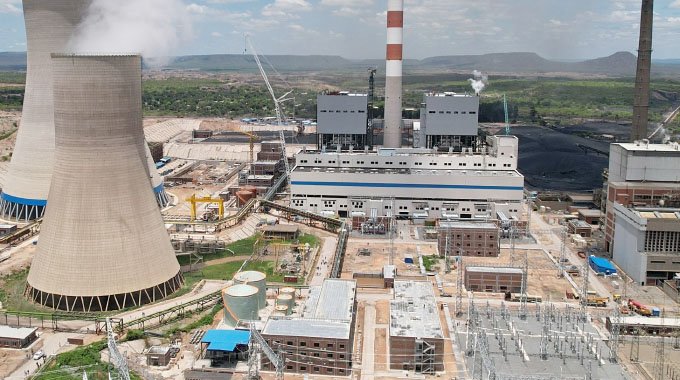ZIMBABWE’S energy landscape has long been plagued by challenges, but the recent performance of Hwange Thermal Power Station’s Units 7 and 8 is a beacon of hope for a brighter future.These two units, each generating 335 megawatts, are not only meeting their targets but also contributing significantly to the national grid.In fact, last year they produced a staggering 53 percent of the country’s total electricity output, providing a much-needed lifeline during critical shortages caused by low water levels at Kariba Hydroelectric Power Station.The commissioning of Units 7 and 8 has been a game-changer for the country’s energy landscape. They have filled the supply gap left by reduced hydroelectric generation, preventing a severe power crisis that would have had far-reaching consequences for the economy and citizens.The advanced emission-control technology featured in the new units is also a welcome development, ensuring compliance with environmental standards and reducing the impact of power generation on the environment.The impact of these units goes beyond just energy security. They are also driving growth in key sectors such as agriculture, mining, and manufacturing.
The production of gypsum, a valuable industrial by-product, is adding impetus to cement production and supporting downstream industries. This is a testament to the multiplier effect of investing in infrastructure and technology, and the potential for energy security to drive economic growth and development.The Government’s commitment to energy security and industrialisation is evident in the investments at Hwange. The joint venture recapitalisation projects aimed at modernising the older units are a step in the right direction.This proactive approach demonstrates a clear understanding of the importance of energy security in driving economic growth and development.
With Hwange Units 7 and 8 performing as expected, the country can look forward to sustained energy stability, reduced reliance on imports, and increased support for key sectors.As Zimbabwe looks to the future, the performance of Hwange Thermal Power Station’s Units 7 and 8 serves as a reminder of the importance of investing in infrastructure and technology to drive economic growth and development.The country has immense potential for growth and development, and with the right policies and investments in place, it can achieve energy security and become a hub for industrialisation in the region.One of the key lessons from the success of Hwange Units 7 and 8 is the importance of strategic investments in infrastructure. The US$1,4 billion Hwange Expansion Project, under which the two units were commissioned, is a testament to the impact that large-scale investments can have on energy security and economic growth.The project’s success is a reminder that investing in infrastructure is not just about building physical structures, but about creating opportunities for economic growth and development.The performance of Hwange Units 7 and 8 also highlights the importance of embracing advanced technology in power generation. The advanced emission-control technology featured in the new units is not only ensuring compliance with environmental standards but also reducing the impact of power generation on the environment.This is a critical consideration for Zimbabwe, as it seeks to balance its economic growth ambitions with its environmental responsibilities.As the country looks to the future, it is essential that the Government continues to prioritise energy security and industrialisation.
This will require sustained investments in infrastructure and technology, as well as policies that support the growth of key sectors.The success of Hwange Units 7 and 8 provides a roadmap for future investments, and demonstrates the potential for energy security to drive economic growth and development.The performance of Hwange Thermal Power Station’s Units 7 and 8 is a significant milestone for Zimbabwe’s energy sector. It demonstrates the potential for strategic investments in infrastructure and technology to drive economic growth and development, and highlights the importance of prioritising energy security and industrialisation.As the country looks to the future, it is essential that the Government continues to build on this momentum, investing in infrastructure and technology to drive economic growth and development. With the right policies and investments in place, Zimbabwe can achieve energy security and become a hub for industrialisation in the region.Share on FacebookPost on XFollow usSave
Originally published on Zimbabwe Herald
Source: Zimbabwe Herald
All Zim News
All Zim News is a central hub for all things Zimbabwean, curating news from across the country so no story is missed.
Alongside aggregation, our team of nationwide reporters provides real-time, on-the-ground coverage. Stay informed and connected — reach us at admin@allzimnews.com.
.
